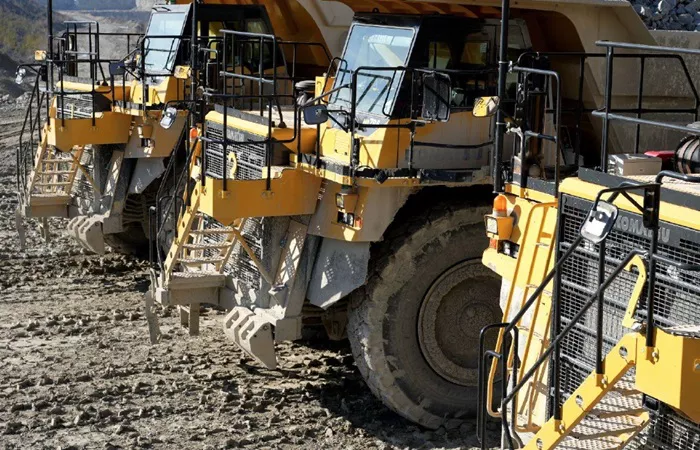Robotics startup Sensmore, based in Berlin and Potsdam, has raised $7.3 million in funding to bring artificial intelligence (AI) to large mobile machines used in industries such as mining and construction.
The company retrofits heavy mobile equipment, such as those found in limestone quarries, with its own hardware and AI-powered software. This allows older machines to become intelligent, autonomous systems capable of complex tasks without prior programming.
“As Europe’s core industries face rising costs and labor shortages, the need for smarter solutions is growing,” Sensmore said in a statement. “We offer automation that is scalable, robust, and ready to use in real-world environments.”
Sensmore’s technology supports full automation across entire fleets, including haul trucks, dumpers, and wheel loaders. According to the company, any machine can be turned into a self-reasoning robot that handles real-time decision-making. This opens up new possibilities for automation in places where it was previously not possible.
Unlike some tech firms, Sensmore involves machine operators in the automation process. CEO and Co-Founder Maximilian Rolf said the company works closely with customers to design useful features from day one. “We’re not just delivering automation — we’re building it with our customers. Our roadmap creates instant value while preparing sites for full autonomy,” Rolf explained.
The company offers several tools under its platform:
- Sensmore Machine Assist, which provides smart alerts and accurate machine positioning,
- Sensmore Site OS, which gives supervisors real-time site control,
- Sensmore Eye, a vision tool that checks product quality using camera data.
Each tool uses large volumes of real-time data to improve safety and efficiency. Over time, these tools lay the groundwork for fully automated operations.
Sensmore’s technology is already being used at some of Europe’s biggest open-pit mines. Customers such as Cemex and Lhoist have reported better productivity and safer working conditions. The company is also testing its first fully automated underground loader, which can complete a full load-and-carry cycle without human help.
Sensmore says it is leading the development of fully integrated AI systems for heavy mobile machinery — a similar path taken by companies like Wayve and Sereact in related fields. Its system combines cameras, 4D radar, and AI software to handle rough terrain and unexpected situations, without needing human input.
Chief Technology Officer and Co-Founder Bjarne Johannsen explains that the company’s AI operates in two layers:
- “Thinking Fast,” a system that lets machines respond quickly, much like reflexes in humans,
- “Thinking Slow,” which adds deeper reasoning and helps machines understand tasks and make decisions.
At the heart of this second layer is a Vision-Language-Action Model (VLAM). Johannsen says this model helps machines solve tasks they haven’t seen before by combining visual data, natural language, and context — a concept also used by companies like Figure AI.
Sensmore’s AI system is designed to work across sectors, including mining, construction, agriculture, and defense — anywhere that machines must operate in harsh, complex environments.
The funding round was led by Point Nine Capital, with participation from other international investors from the US and UK, including Acequia Capital, Tiny Supercomputer, Prototype Capital, and Entrepreneur First.
Ricardo Sequerra Amram, Partner at Point Nine, said, “Sensmore is pioneering a new era of intelligent automation. Their strong tech team and close customer ties are helping reshape how machines work in tough industries.”
The company also received funding from major industry figures, including:
- Amar Shah (Wayve)
- Michael Wax (Forto)
- Arnoud Balhuizen (former CCO at BHP, board member at Teck Resources)
- Thilo Konzok, Roby Stancel, Robin Dechant, Alexey Zhigarev, and
- Elmar Leiblein (former CEO of Thyssenkrupp Mining)
Public funding also came from the State of Brandenburg and the European Union.
With this new capital, Sensmore aims to expand its solutions across more sites and continue its mission to automate the world’s heaviest machines.

